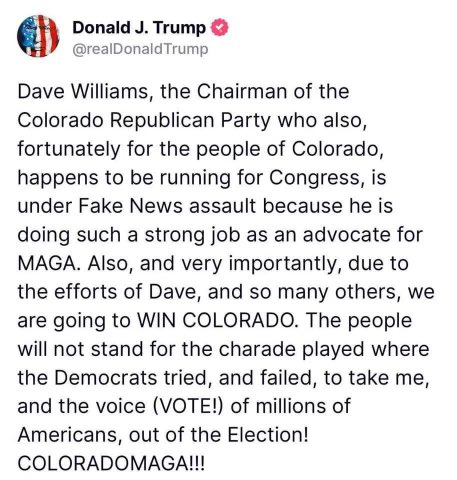The statement is a political endorsement and a call to action for a political campaign, which constitutes public discourse. It addresses the performance of a political figure, the impact of alleged media bias, and the anticipated political success in an upcoming election.
- The statement does not appear to cause harm but does use charged language such as 'Fake News assault' which could be seen as divisive.Principle 1:I will strive to do no harm with my words and actions.
- The statement respects the privacy and dignity of the individual it supports, but the use of 'Fake News' may undermine the dignity of others by dismissing opposing viewpoints without engagement. [-1]Principle 2:I will respect the privacy and dignity of others and will not engage in cyberbullying, harassment, or hate speech.
- The statement lacks empathy towards those with opposing views, labeling them as part of a 'charade'. [-1]Principle 3:I will use my words and actions to promote understanding, empathy, and compassion.
- The statement does not promote constructive criticism or dialogue, as it dismisses opposing views as 'Fake News' and a 'charade'. [-2]Principle 4:I will engage in constructive criticism and dialogue with those in disagreement and will not engage in personal attacks or ad hominem arguments.
- There is no indication of acknowledgment or correction of mistakes.Principle 5:I will acknowledge and correct my mistakes.
- The statement uses influence to rally support for a political cause, which could be seen as contributing to society by the speaker's supporters. [+1]Principle 6:I will use my influence for the betterment of society.
- The statement upholds the principle of free speech but may not use the platform with integrity if the claims of 'Fake News' are unfounded.Principle 7:I will uphold the principles of free speech and use my platform responsibly and with integrity.
